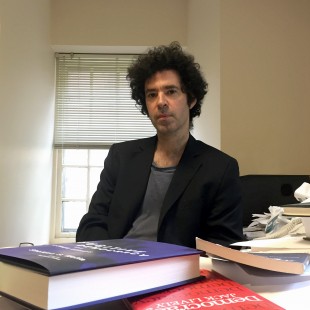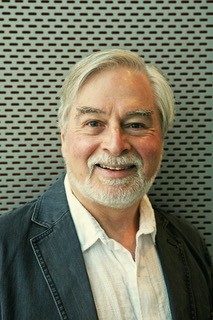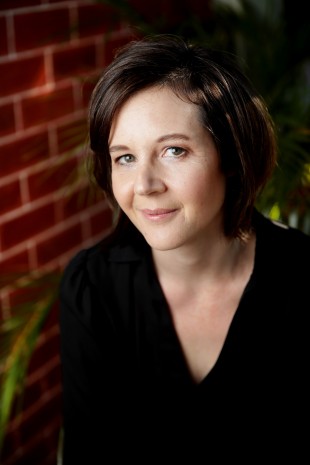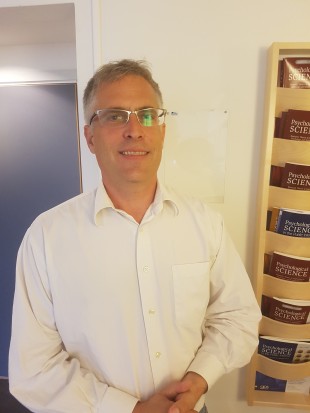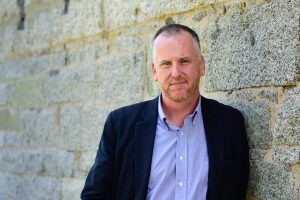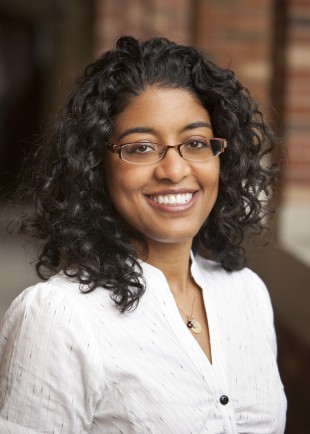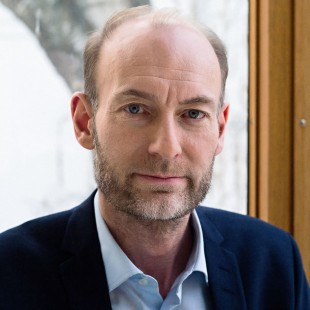
Fake News and Alternative Facts
The topic of this year's Academy Symposium was Fake News and Alternative Facts. We invited prominent speakers from political science, philosophy, psychology, media science and law, as well as journalists and politicians to address a cluster of issues.
Programme
MONDAY
09:40 Welcome
Professor Ole M. Sejersted, President of The Norwegian Academy of Science and Letters
09:45 Perspectives on Fake News and Alternative Facts
Henrik Asheim, Constituted Minister of Education and Research
09:55 Introduction to the Symposium
Professor Camilla Serck-Hanssen, Vice President of The Norwegian Academy of Science and Letters and Head of the Humanities and Social Sciences Division
FAKE NEWS/ ALTERNATIVE FACTS, WHAT'S THAT?
10:00 Subversions of Liberalism
Professor Jason Stanley, Yale University
11:00 Gullibility or Political Open-Mindedness? Old Wine, New Bottles, and New Insights
Professor George E. Marcus, Williams College
12:00-13:00 Discussion
WHY DO WE BELIEVE FAKE NEWS, OR DO WE?
14:15 His Brain, Her Brain? What We Bring to - and Take From - News about Sex Differences
Professor Cordelia Fine, University of Melbourne
15:15 In a World of Fake News - Do People Trust Fact-Checkers?
Senior Researcher Petter Bae Brandtzæg, SINTEF
16:15 You Better Believe it! What Cognitive Psychology Tells us About Fake News
Professor Tim Brennen, University of Oslo
17:15 Discussion
TUESDAY
FAKE NEWS AND THE MEDIA
09:30 Fake News, Propaganda and Political Value of Truth
Professor Michael Lynch, University of Connecticut
10:30 The Authenticity Paradox: How the Media Constructs Reality
Professor Gunn Enli, University of Oslo
11:30-12:30 Discussion
FAKE NEWS, LAW AND MEDIA ETHICS
13:45 Politics of Law and Order
Professor Tracey L. Meares, Yale Law School
14:45 -16:00 Plenary discussion with invited guests from the Norwegian press:
Knut Olav Åmås, Director of Fritt Ord Foundation (www.frittord.no/en), Leader of Pressens Faglige Utvalg (Norwegian Press Complaints Commission) Alf Bjarne Johnsen and Political Editor of Aftenposten, Trine Eilertsen.
SYMPOSIET BLE ARRANGERT MED STØTTE FRA GROSSERER N. A. STANGS LEGAT OG FRITT ORD
Speakers
Professor Camilla Serck-Hanssen
Bio:
I did my PhD at The University of California, San Diego (1996) with a thesis on Kant's concept of apperception. My supervisor was Henry E.Allison. My main area of research is still in the history of philosophy (1600-1800) and Kant in particular. More recently I have started to work in the fields of Military Ethics and Conceptual Engineering.
Together with Herman Cappelen and Øystein Linnebo I am a co-leader of the project "Conceptual Engineering" (funded through summer 2020 by the Norwegian Research Council) and of ConceptLab (http://www.hf.uio.no/ifikk/english/research/projects/cl/).
I am also the President of the Norwegian Kant Society and Co-editor of Archiv für Geschichte der Philosophie. In 2015-16 I was group leader for the research project "Disclosing the Fabric of Reality- The Possibilty of Metaphysics in the Age of Science" (funded by Center for Advanced Study- http://www.cas.uio.no).
I am currently Vice President of The Norwegian Academy of Science and Letters and have served on a number of boards at The University of Oslo, as Head of Department and Dean of Research, I am engaged in two external councils. One is the The Norwegian Press Complaints Commission (http://presse.no/Saker/The-Norwegian-Press-Complaints-Commission) where I have been a member since 2002. A more recent role (2012) is as Leader of the Defence Ethics Council (http://www.forsvarsetikk.no/om-etisk-raad/om-raadet/)
Professor Jason Stanley
Abstract:
In the United States today, clearly illiberal groups are the ones who most prominently march under the banner of liberal ideals; white nationalists and neo-Nazis form the core of the current "free speech demonstrations". Authoritarian minded leaders cloak themselves as champions of truth. In this talk, I characterize the basic concepts of political propaganda, in a way meant to illuminate the current threats to liberal democracy.
Bio: Jason Stanley is the Jacob Urowsky Professor of Philosophy at Yale University. He has published four books, and dozens of articles in the areas of philosophy of language, epistemology, linguistics, cognitive neuroscience, social and political philosophy, and public policy. His first book was the winner of the 2007 American Philosophical Association book prize. His last book, How Propaganda Works (Princeton UP, 2015) was the winner of the 2016 PROSE award for the subject area of philosophy. His fifth book, The Politics of Language, is forthcoming with Princeton University Press in 2018. He writes widely for the press on the topic of propaganda, and has published in The New York Times, The Washington Post, Die Frankfurter Allgemeine Zeitung, and numerous other venues.
Professor George E. Marcus
Abstract:
Human gullibility has throughout the thousands of years western thinking been offered as central evidence of human fallibility. But what if gullibility is a design feature? Gullibility enables humans to take up new imagined projects and to sustain their efforts to break from well-established conventions.
The emotion often called hope is the foundation of this capacity. But, strange given its long status as villain in the long war between reason and passion, the emotion best known as anxiety enables humans to break from gullibility. In different studies I show the emotional foundations of both gullibility and thoughtful deliberation.
Bio:
George E. Marcus, Williams College
George E. Marcus is professor of political science at Williams College. He received his B.A. from Columbia University. His M.A. and PhD. are from Northwestern University.
He is a co-author, with John L. Sullivan and James E. Piereson, of Political Tolerance and American Democracy (University of Chicago Press, 1982, 1989, 1993), and, co-author, with John L. Sullivan, Elizabeth Theiss-Morse, and Sandra L. Wood, of With Malice Toward Some: How People Make Civil Liberties Judgments (Cambridge University Press, 1995). He is co-author of the book Affective Intelligence and Political Judgment, with W. Russell Neuman and Michael MacKuen (University of Chicago Press, 2000). He is also author of The Sentimental Citizen (Penn State University Press, 2002; French language edition, Les Presses de Sciences Po, 2009). Co-editor of The Affect Effect (University of Chicago Press, 2007). And, co-author with Stanley Feldman and Leonie Huddy of the book, Going to War in Iraq: When Citizens and the Press Matter (University of Chicago Press, 2015). His current research continues on the role of emotion in democratic politics. He has published numerous articles in political science journals. He has published a textbook, Political Psychology: Neuroscience, Genetics, and Politics with Oxford University Press (2013).
He was co-editor, with Russ Hanson, of Reconsidering The Democratic Public (Penn State University Press, 1993) as well as a contributor to a number of other edited volumes. He was cofounder and, for 12 years, coeditor of the journal, Political Methodology. He was executive director of the International Society of Political Psychology from 1992 to 1996. He completed his service as Chairman of the Board of Directors of the Roper Center in 2008 and as President of the International Society of Political Psychology in 2007. He serves on the editorial board of the journal Political Psychology. He has received grants from the National Science Foundation, the National Endowment for the Humanities, the Sloan Foundation, the Ford Foundation, the Carnegie Corporation, and a residency at the Rockefeller Foundation Center in Bellagio, Italy.
Professor Cordelia Fine
Abstract:
Evidence that promises to help explain persistent sex inequalities is often highly contested. Are claims of hormonal contributions the product of sexist science? Are reports of gender bias and discrimination flawed? And what would 'true' equality look like, anyway? This talk will explore the role of preconceptions and values in the production of knowledge about sex differences, and what we bring to, and take from, such science news.
Bio:
A professor in the History and Philosophy of Science program in the School of Historical and Philosophical Studies at the University of Melbourne, Cordelia is also an internationally acclaimed writer. Together, her three books have established her "reputation for exemplary clarity on complex topics, pleasing wit, feminist principle -- and beneath it all, the animating faith that people can be improved through knowledge," as The Guardian (UK) put it.
Her second book, Delusions of Gender, was shortlisted for the Victorian Premier's Literary Award for Non-Fiction, the Best Book of Ideas 2011, the John Llewellyn Rhys Prize and the biannual cross-genre Warwick Prize 2013, and was a Guardian and London Evening Standard Book of the Year, a Washington Post Best Non-Fiction Book of the Year, and listed in "10 books by women that will change your life" (Sunday Times), "22 books women think men should read" (Huffington Post), "Top 10 books on women in the past 30 years" (The Australian) and "40 new feminist classics" (Literary Classics).
Cordelia's latest book is Testosterone Rex: Unmaking the myths of our gendered minds, "a witty corrective" (Nature) and an Amazon Best Book.
Cordelia has also written for outlets including The Monthly, New York Times, Wall Street Journal, Financial Times and The Guardian.
Dr. Petter Bae Brandtzæg
Abstract:
With the rise of social media sites like Facebook, YouTube and Twitter, users receive endless flows of information, alternative facts and fake news, which makes it harder to filter and assess the accuracy of content and sources. In response to this challenging situation, recent years have seen a substantial growth in outlets supporting people with fact-checking and debunking in the flow of information online. An international census from 2016 counted 96 active fact-checking initiatives, which was a 50% increase from the previous year. Well-known examples of such services include Snopes, FactCheck.org, and StopFake. Clearly, such fact-checking services should be beneficial to users of social media, but building and sustaining trust is often challenging. This talk aims to talk about the rise of fact-checkers and to understand how people perceive fact-checking outlets concerning trustworthiness.
Bio:
Dr. Petter Bae Brandtzaeg is a Senior Research Scientist at SINTEF Digital. He holds a Ph.D in media and communications studies from the University of Oslo. He has been researching Internet usage for more than 17 years. The last couple of years he had been researching verification and fact-checking of social media content in the context of digital journalism. He has published widely in journals such as New Media and Society, Journal of Computer-Mediated Communication, Computers in Human Behavior, and The International Journal of Human-Computer Studies.
Professor Tim Brennen
Abstract:Humans are less than optimal information processors. This talk will outline several shortcomings that make them susceptible to fake news. Mechanisms of memory are constructive rather than veridical leaving us vulnerable to misremembering real events and remembering fictitious events. When seeking information, we suffer from a wretched tendency simply to confirm previously-held beliefs, leading to poorer detection of weakness in arguments we believe in. Our ability to disregard information that turns out to be inaccurate or inadmissible is limited, and when listening to a speaker we are poor at distinguishing lies from truth. Given these findings it is not a surprise that humans are susceptible to fake news.
Bio: Tim Brennen is a professor of psychology at the University of Oslo. Previously he had positions at the University of Tromsø, Université de Savoie, & Université Pierre Mendès France, Grenoble, and has his PhD from the University of Nottingham. His research on aspects of applied memory includes work on face recognition, memory for names, autobiographical memory, inducing false memories, and the effects of exposure to trauma on cognition. He teaches forensic psychology to trainee judges, is a co-author on Gerrig, Zimbardo et al's (2012) introductory psychology textbook "Psychology and Life", has been associate editor for several international journals and is currently vice-dean of research at the Faculty of Social Sciences, University of Oslo.
Professor Michael Lynch
Abstract: Fake news is a clear danger to democratic politics. One aspect of that danger is obvious: it spreads misinformation. But another aspect, less often discussed, is that it also spreads confusion and undermines epistemic trust. In this paper, I will argue that it is this second aspect that captures the most pernicious effect of fake news and related propaganda. It undermines the political value of truth--or more exactly, the pursuit of truth, by diminishing confidence in the institutions that protect and encourage that value.
Bio:
Michael Patrick Lynch is a professor of philosophy at the University of Connecticut, where he directs the Humanities Institute. He is the author or editor of seven books, including The Internet of Us, In Praise of Reason: Why Rationality Matters for Democracy and the New York Times Sunday Book Review Editor's pick, True to Life. The recipient of the Medal for Research Excellence from the University of Connecticut's College of Liberal Arts and Sciences, he is the PI of Humility & Conviction in Public life, a $7 million research and engagement project aimed revitalizing meaningful public discourse funded by the John Templeton Foundation and UConn. He has held additional grants from the National Endowment for the Humanities and the Bogliasco Foundation among others. A frequent contributor to the New York Times' "The Stone" weblog, Lynch lectures widely, and has spoken at TED, Chautauqua, and SXSW. He is currently working on a book on the influence of arrogance and dogmatism in our political culture.
Professor Gunn Enli
Abstract:
What is the authenticity contract and why is it essential for mediated communication? What happens when the contract is broken, and how is the contract renegotiated? How does the media construct reality, and what are the most efficient authenticity markers in mediated communication?
The talk addresses these questions, and discusses the current media legitimacy crisis in light of examples from the media history. A key argument is that the media's representation of reality has always been questioned, but that the launch of new media technologies challenges existing trust relations and authenticity contracts.
Bio:
Gunn Enli (PhD) is professor in media studies at Department of Media and Communication, University of Oslo. She teaches and researchers in the fields media policy, political communication, participatory media, and mediated authenticity.
Enli has written seven books, of which three are published on the international market. Her most recent books are The Routledge Companion to Social Media and Politics (2016), Mediated Authenticity (2015), and The Media Welfare State (2014). She has published widely in international peer-reviewed journals such as Convergence, European Journal of Communication, First Monday, Javnost, Media, Culture & Society etc.
Enli was the project leader of the international project Social Media and Election Campaign, which was founded by the Norwegian Research Council (NFR), and included a team of researchers from five different universities in the Nordic region, Australia and the USA. She is currently involved in a project on private media and public responsibilities, in collaboration with Vrije University Brussels.
Enli has presented her work at University of Sydney, New York University, Goldsmiths University, Colombia University, Indiana University, and University of Antwerp. She has also been a visiting professor at London School of Economics (LSE).
Enli is on the editorial board of three international peer-reviewed journals, and serves in several national committees for media policy regulators and higher education.
Professor Tracey L. Meares
Abstract: In the United States the phrase "law and order" has long had a particular authoritarian valance. As it is well-known, former Presidents Nixon and Reagan, argued that tough on crime criminal justice strategies were necessary to address rising rates of violence in urban communities. Mainstream media representations of events at that time provided what many in the public believed to be a valid basis for these strategies, but today we well understand the law and order phrase to be an obvious "dog whistle." My lecture will address what it means for political leadership in the US claim an imperative to "Make Our Country Safe Again" when the facts suggest the US is safer than it has ever been.
Bio:
Tracey L. Meares is the Walton Hale Hamilton Professor and Director of the Justice Collaboratory at Yale Law School. Before joining the faculty at Yale, she served as a professor at The University of Chicago Law School from 1995 to 2007. She was the first African American woman to be granted tenure at both law schools. Professor Meares's teaching and research interests focus on criminal procedure and criminal law policy with a particular emphasis, at the moment, on policing. She has worked extensively with the federal government having served on the Committee on Law and Justice, a National Research Council Standing Committee of the National Academy of Sciences and the Department of Justice Office of Justice Programs Science Advisory Board. In December 2014, President Obama named her as a member of his Task Force on 21st Century Policing. She has a B.S. in general engineering from the University of Illinois and a J.D. from the University of Chicago Law School.
Knut Olav Åmås
(born 1968) is the executive director of the Fritt Ord Foundation. He has served as state secretary in the Norwegian Ministry for Culture, culture and opinions editor at the daily newspaper Aftenposten, editor of the journal Samtiden and commissioning editor at the Scandinavian University Press. He holds a cand. philol. degree in philosophy and a dr. philos. degree in media studies. He has edited, translated or authored 18 books and received several prizes for his journalism and publishing.
Alf Bjarne Johnsen
is a Senior Political Writer in Verdens Gang Media House in Oslo, Norway, www.vg.no. He started working as a fulltime journalist in a local paper in his hometown Narvik in 1976. He was a staff reporter for Norway's bi-weekly Defense Forum Newspaper for two years between 1979 and 1983.In 1983, he started working as a journalist for Verdens Gang (VG).
He was the newspapers Correspondent in Stockholm in 1988-89, and in New York in 1996-99.
Currently, he covers the Government and the Parliament of Norway, national and international politics, and has a special assignment on defense policy and NATO under their Norwegian Secretary General. He has his education in journalism from the Norwegian School of Journalism in 1982.
Since 2014, Mr Johnsen chairs the Norwegian Press Complaint Commission.
